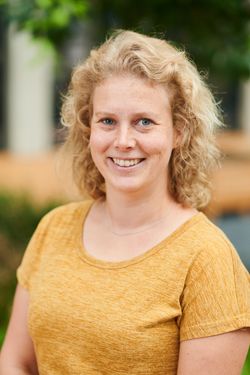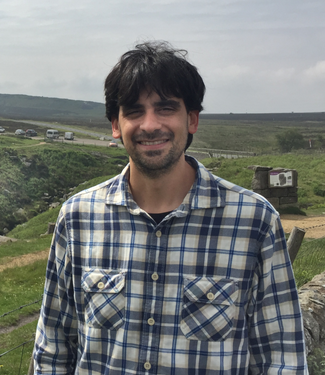
Sessions in which Marco Lehmann participates
Thursday 30 June, 2022
The interpretation of stable isotopes in a dendroecological framework can provide powerful insights into how trees adjust physiologically in response to the environment. This symposium aims to bring together researchers who use stable isotopes in tree rings to address ecophysiological responses to environmental changes from intra-annual to multi-decadal resolution. We hope this symposium will enable fruitful discussions and new ideas a...
Hydrogen isotope ratios in tree ring cellulose (δ2HC) have been recognized as a potential proxy for plant-climate interactions, plant physiology, and carbon metabolism. This goes along with recent studies showing species-specific δ2HC differences that cannot be explained by climatic conditions. However, systematic investigations on the phylogenetic impact on 2H-fractionations in carbohydrates of woody plant species are missing.Here, we sampled leaves and twigs of 152 trees and ...
Sessions in which Marco Lehmann attends
Tuesday 28 June, 2022
Wednesday 29 June, 2022
Dendrochronology is considered one the most precise of all the scientific dating techniques. However, it requires long sequences of tree rings and a master record for both the species and region in question. At the University of Groningen, we have been pioneering a new approach to dating that combines the precision of dendrochronology with the versatility of radiocarbon dating. It relies on the detection of spikes in the annual radiocarbon record, thought to b...
Current and projected changes in climate are estimated to be from 10 to 100 times faster than the natural adaptive capacity of trees whose generation times are long. As extreme climatic events are becoming more frequent and exert a strong selection pressure on tree populations, there is an urgent need to better characterize the genetic variability involved in the response of trees to climate. There is currently a lack of knowledge on the role of genetic variability in tolerance to climatic...
Presentation of all Ameridendro2022 posters.FREE LUNCH FOR ALL ATTENDEES!
Thursday 30 June, 2022
How old are tropical trees? This fundamental question has long driven the curiosity of laymen and scientists. But only recently, a great number of studies conducted by many brave dendrochronologists resulted in a significant tree-ring-based knowledge that allows us to start accurately estimating tree ages across the globe. As science goes, not only knowing the longevity of tropical trees is essential to understanding forest dynamics and its role in biogeochemical cycles, but one must also ...
In their book chapter in 2011 Gagen et al. (2011) highlighted the need for stable isotope dendroclimatology to move beyond studies that simply demonstrate ‘potential’. This symposium, more than a decade since this publication, will focus on dendrogeochemical studies that demonstrate that the field has moved beyond studies focused on ‘potential’. In particular, this session will strive to identify compelling new insights into unique aspect...

